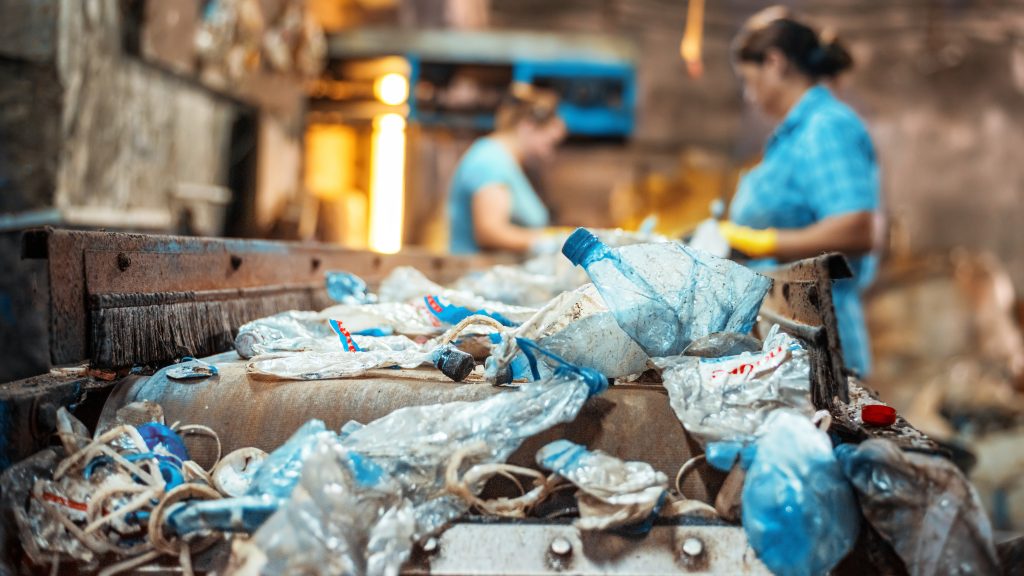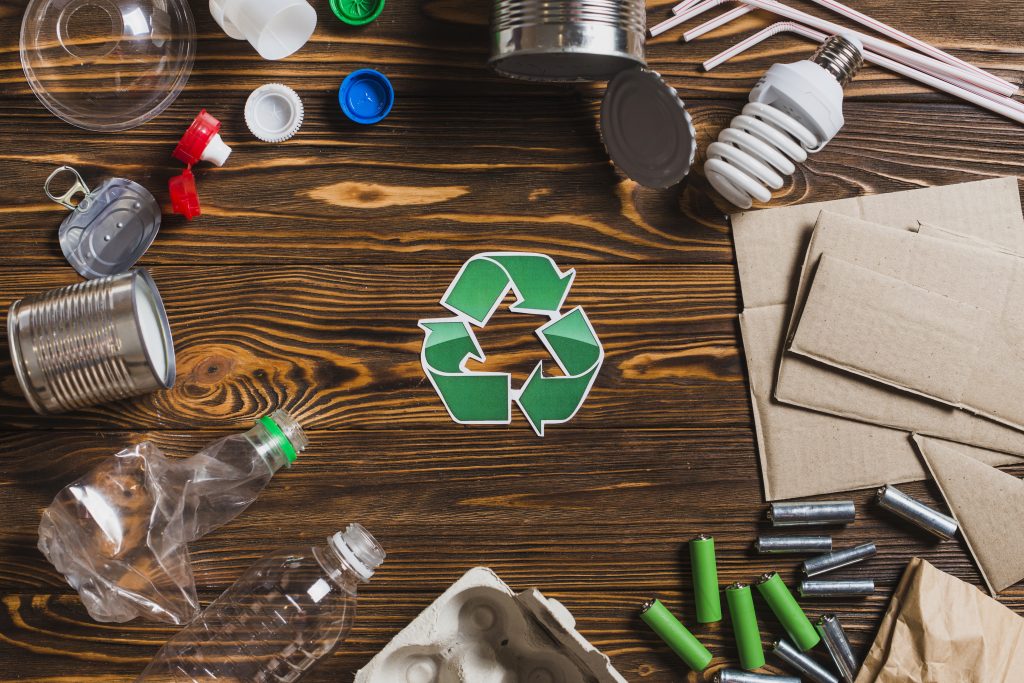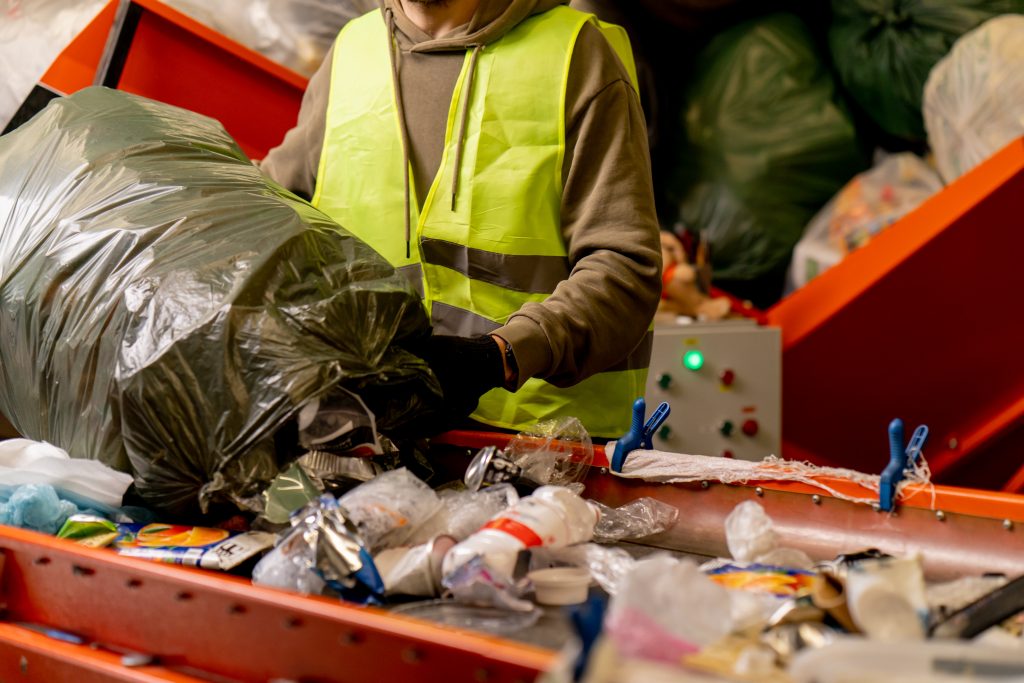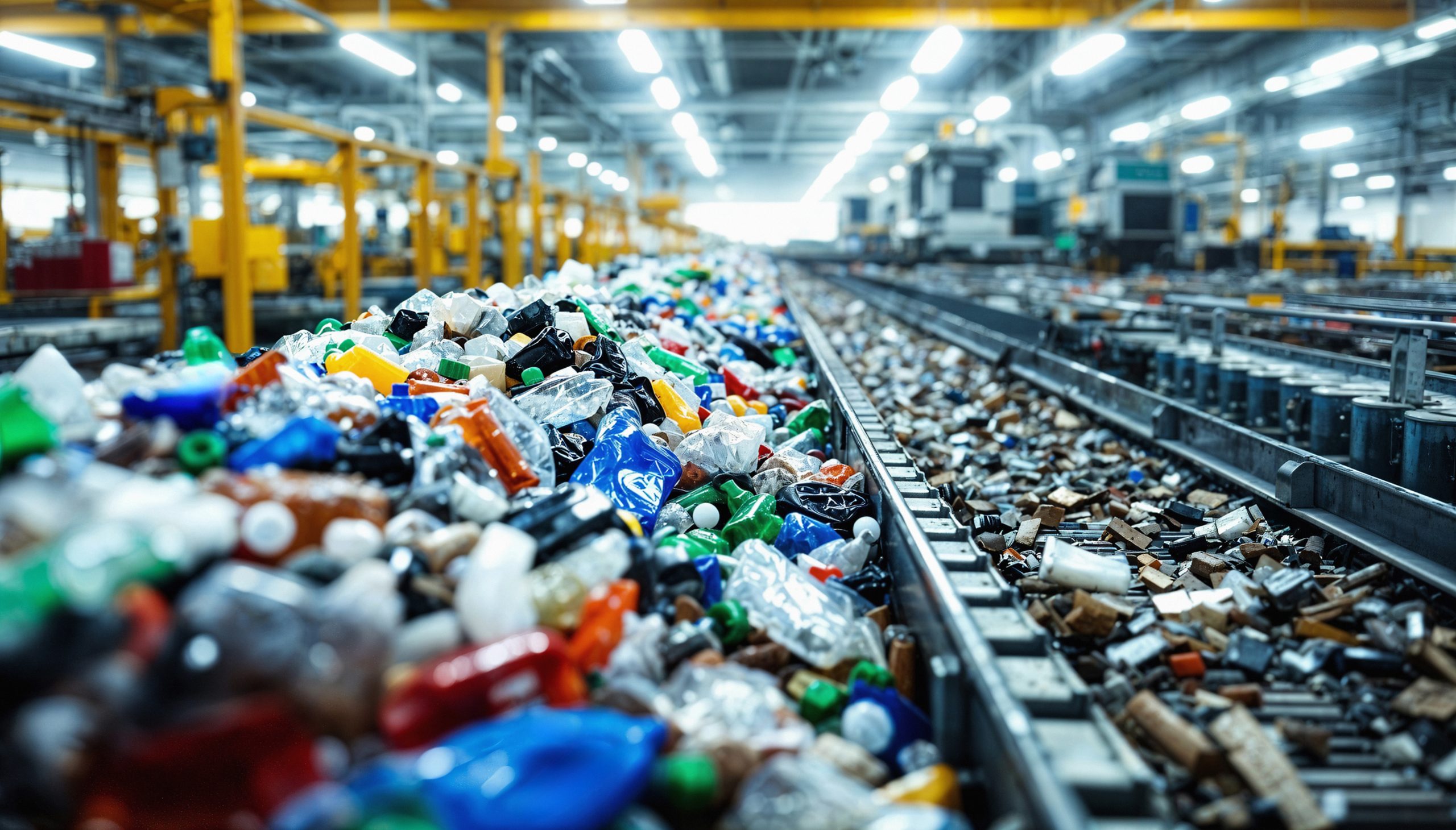Industrial activities are indispensable for the progress of the modern world. However, these activities generate a significant amount of waste. If not managed properly, this waste not only harms the environment but also increases operational costs for businesses. At this point, industrial recycling methods come into play. Recycling waste is a critical step for conserving resources and increasing energy efficiency. In this article, we will examine the main recycling methods, the advantages they provide to businesses, and BURKASAN’s role in the sector in detail.

Table of Contents
- Importance of Industrial Recycling
- Main Recycling Methods
- Metal Recycling
- Plastic Recycling
- Glass and Ceramic Recycling
- Wood and Pallet Recycling
- Chemical and Hazardous Waste Recycling
- Energy Recovery from Waste
- Advantages for Businesses
- Application Areas
- BURKASAN’s Contribution
- Conclusion
- Frequently Asked Questions
Importance of Industrial Recycling
Globally, approximately 2 billion tons of waste are generated each year, more than 50% of which is industrial waste. Mismanaged waste directly affects air pollution, water contamination, and climate change. Industrial recycling methods were developed to prevent these impacts. Thus, businesses conserve natural resources, reduce costs, and fulfill their environmental responsibilities. In conclusion, recycling is a win-win approach for both businesses and society.
Main Recycling Methods
Different methods are used in industrial waste recycling. Businesses select the appropriate method depending on the type of waste:
- Source Separation: Businesses collect waste separately at the production site, reducing costs.
- Physical Transformation: Facilities grind, melt, or press waste to make it reusable.
- Chemical Transformation: Engineers process waste with chemical reactions to produce new raw materials.
- Thermal Transformation: Systems applying high temperatures extract energy or different products from waste.
- Energy Recovery: Businesses convert organic waste into energy, generating economic benefits.
Metal Recycling
Metal recycling is one of the most efficient methods in the industry. For example, aluminum recycling saves up to 95% of energy. Globally, more than 500 million tons of steel are recycled annually, significantly contributing to the conservation of natural mines. It also reduces the demand for new raw materials, providing cost advantages for businesses. In Turkey, the iron and steel industry meets a large portion of its production capacity through recycling.
Plastic Recycling
Plastics remain in nature for hundreds of years without decomposing and cause significant environmental harm. Therefore, businesses implement recycling processes as a critical step. Plastic recycling has two main methods: mechanical and chemical transformation. In mechanical recycling, facilities crush, wash, and reshape plastics. In chemical recycling, specialists break plastics down into monomers and turn them back into raw materials. Additionally, upcycling practices allow businesses to convert plastic waste into higher-value products. For example, the textile industry produces polyester fabrics from recycled plastic bottles.
Glass and Ceramic Recycling
Glass does not decompose in nature, but it can be recycled 100%. When manufacturers melt recycled glass, they consume 30% less energy compared to producing new glass from raw materials. Therefore, glass recycling is critical for energy efficiency. In the construction sector, ceramic waste is reused as filler material or as an additive in infrastructure projects.

Wood and Pallet Recycling
Wooden pallets used in the logistics sector generate large amounts of waste. Businesses repair and reuse these pallets. In addition, energy facilities use wooden pallets for biomass production. This method reduces costs and contributes to sustainable forest management.
Chemical and Hazardous Waste Recycling
Recycling chemical waste requires special expertise and advanced technology. Improper disposal of chemical waste can seep into soil and groundwater, causing long-term environmental disasters. Such waste also contains toxic compounds that directly affect human health. Therefore, processes such as neutralization, distillation, solvent recovery, and advanced chemical treatments must be applied according to international standards. Each process should be planned according to the type and intensity of the waste, minimizing environmental risks meticulously. Hazardous waste management must only be carried out in licensed disposal facilities in compliance with regulations. In Turkey, BURKASAN provides reliable solutions in this field with its strong infrastructure, expert engineering staff, and environmentally sensitive approach. It helps businesses fulfill their legal obligations and contributes to sustainable environmental policies.
Energy Recovery from Waste
Energy recovery is one of the most innovative methods in modern industry. Waste can be converted into biogas, pyrolysis oil, or electricity. In Europe, many cities reduce their waste problems while generating electricity through waste-to-energy plants. In Turkey, biomass power plants are becoming increasingly widespread. This method reduces carbon emissions and decreases dependence on fossil fuels.
Advantages for Businesses
The main advantages of industrial recycling for businesses include:
- Reducing energy consumption and lowering costs.
- Conserving natural resources.
- Minimizing waste disposal costs.
- Facilitating compliance with legal regulations.
- Contributing to corporate social responsibility projects.
- Increasing brand value and competitiveness.
- Meeting environmental standards in exports.
Application Areas
Industrial recycling methods are applied in many sectors such as automotive, textiles, chemicals, food, and construction. For example, in the automotive industry, metal parts are recycled and reused in new production. In the textile industry, waste fabrics are recovered to produce new yarns and textiles. In the construction industry, concrete waste is reused as filler material in infrastructure projects. These practices demonstrate the critical role of recycling across all areas of industry.
BURKASAN’s Contribution
BURKASAN is one of Turkey’s leading companies in industrial recycling. With modern facilities and expert staff, it provides safe recycling services for metals, plastics, glass, wood, and chemical waste. It offers businesses both cost advantages and the opportunity to achieve their sustainability goals.
Conclusion
Industrial recycling methods are indispensable for the sustainability of modern industry. Conserving natural resources, increasing energy efficiency, and generating economic benefits are among the main advantages of these methods. For companies seeking professional support in this field, BURKASAN provides reliable solutions. In conclusion, industrial recycling methods are among the most important tools shaping the future of industry. You can also visit the Ministry of Environment, Urbanization, and Climate Change website for detailed information on environmental regulations.

Frequently Asked Questions
What is industrial recycling?
It is the process of converting industrial waste into raw materials or energy through various methods.
Which sectors benefit from recycling?
Automotive, textile, construction, food, and chemical industries benefit the most from recycling.
What are the benefits of recycling for businesses?
It saves energy, reduces costs, and increases brand value.
How should chemical waste be managed?
It should be safely treated in licensed disposal facilities through neutralization and specialized chemical processes.
Can energy be obtained from waste?
Yes. Electricity and heat can be produced through methods such as biomass, pyrolysis, and gasification.

